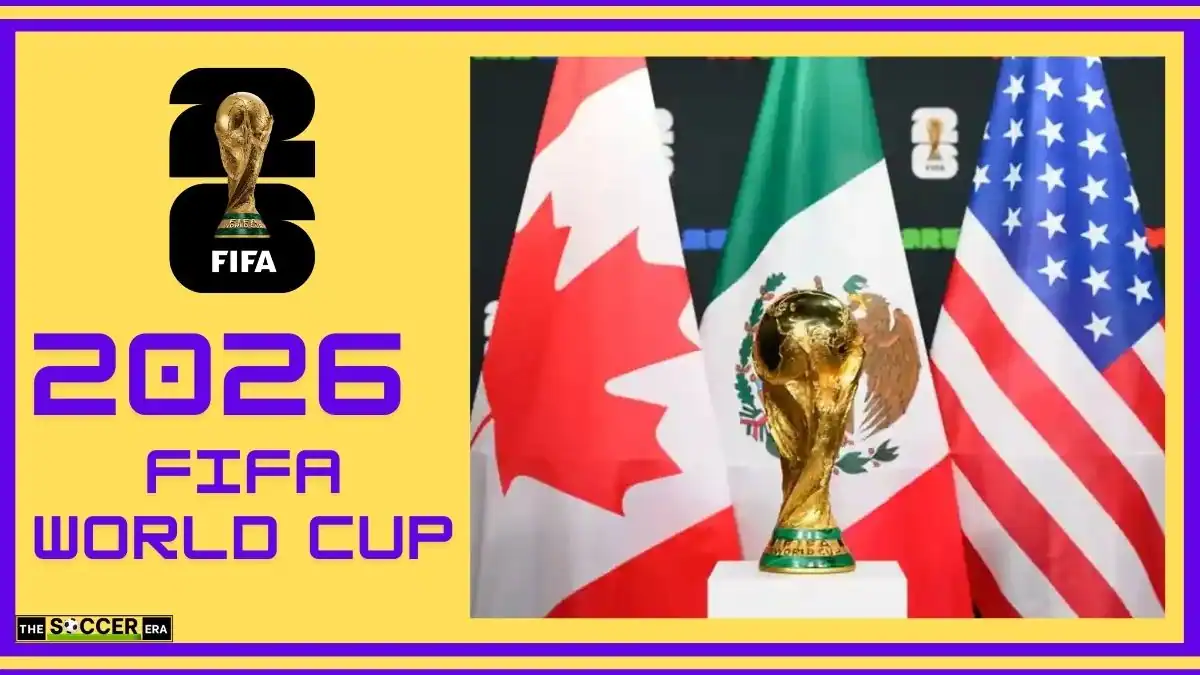The FIFA World Cup 2026 is set to make history as the most ambitious and expansive edition of football’s premier tournament. For the first time, three nations will join forces to host this global spectacle, promising an unforgettable celebration of the beautiful game across North America.
The 2026 FIFA World Cup represents several groundbreaking firsts in the tournament’s illustrious history. This will be the inaugural edition to feature 48 teams after the 2026 FIFA World Cup qualification process, expanding from the traditional 32-team format that has defined the competition since 1998.
The tournament will span an unprecedented 39 days from June 11 to July 19, 2026, featuring a total of 104 matches across 16 magnificent stadiums.
What makes this World Cup truly groundbreaking is its tri-national hosting. From the stadiums in Toronto, Canada, to Guadalajara, Mexico, and New York, USA, the 2026 edition promises a truly global football festival.
The United States, Canada, and Mexico have united to create the first-ever three-country World Cup, bringing together diverse cultures, passionate fan bases, and world-class infrastructure to deliver an unparalleled football experience.
From the historic opening match at Mexico City’s legendary Estadio Azteca to the climactic final at New York’s MetLife Stadium, every moment promises to create lasting memories for billions of football fans worldwide.
As we count down to June 11, 2026, the world eagerly anticipates this unprecedented celebration of the beautiful game across North America.
Argentina is the reigning champion, having secured its third title in the 2022 FIFA World Cup.
FIFA World Cup 2026 Host Countries and Cities
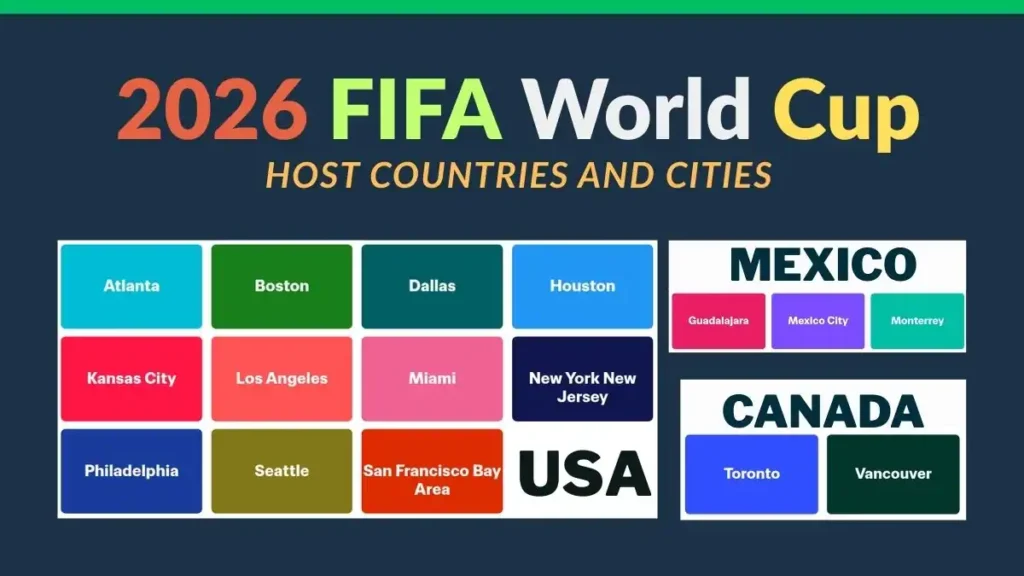
The FIFA World Cup 2026 will be hosted across the United States, Canada, and Mexico, making it the first World Cup with three host nations. Matches will be played in multiple iconic cities, giving fans a chance to experience the tournament across North America.
From stadiums in Canada’s Toronto to Mexico’s Guadalajara and the USA’s New York, the 2026 edition promises a truly global football festival.
United States (11 Cities)
The United States serves as the primary host, welcoming 11 vibrant cities to the World Cup family:
- New York/New Jersey – MetLife Stadium (87,157 capacity) – Final venue
- Los Angeles – SoFi Stadium
- Dallas – AT&T Stadium (92,967 capacity) – Semi-final venue
- Atlanta – Mercedes-Benz Stadium (75,000 capacity) – Semi-final venue
- Boston – Gillette Stadium (70,000 capacity) – Quarter-final venue
- Philadelphia – Lincoln Financial Field
- Miami – Hard Rock Stadium (67,518 capacity) – Third-place match
- Kansas City – Arrowhead Stadium (76,640 capacity) – Quarter-final venue
- Houston – NRG Stadium (72,220 capacity)
- Seattle – Lumen Field
- San Francisco Bay Area – Levi’s Stadium
Mexico (3 Cities)
Mexico brings a rich football heritage with three iconic venues:
- Mexico City – Estadio Azteca (87,523 capacity) – Opening match venue
- Guadalajara – Estadio Akron
- Monterrey – Estadio BBVA (53,460 capacity)
Canada (2 Cities)
Canada completes the hosting trio with two dynamic locations:
The expanded 48-team format introduces an exciting new structure that promises more thrilling football action.
Group Stage Structure
The FIFA World Cup 2026 Teams will be divided into 12 groups of four teams each, replacing the previous 16-group format initially proposed. This refined structure addresses concerns about competitive integrity while maximizing entertainment value.
- 12 groups with 4 teams per group
- Each team plays 3 group matches
- The top 2 teams from each group advance automatically
- The 8 best third-placed teams also qualify for the knockout rounds
Knockout Phase
The tournament introduces a Round of 32:
- Round of 32: 32 qualified teams (June 28 – July 3, 2026)
- Round of 16: 16 teams (July 4-7, 2026)
- Quarter-finals: 8 teams (July 9-11, 2026)
- Semi-finals: 4 teams (July 14-15, 2026)
- Final: 2 teams (July 19, 2026)
This format ensures that teams reaching the final will have played 8 matches instead of the traditional 7.
Key Tournament Schedule
- Opening Match: June 11, 2026 – Estadio Azteca, Mexico City
- Group Stage: June 11-27, 2026
- Final: July 19, 2026 – MetLife Stadium, New York/New Jersey
- Final Draw Ceremony: December 5, 2025 – Kennedy Center, Washington, D.C.
Qualification Process
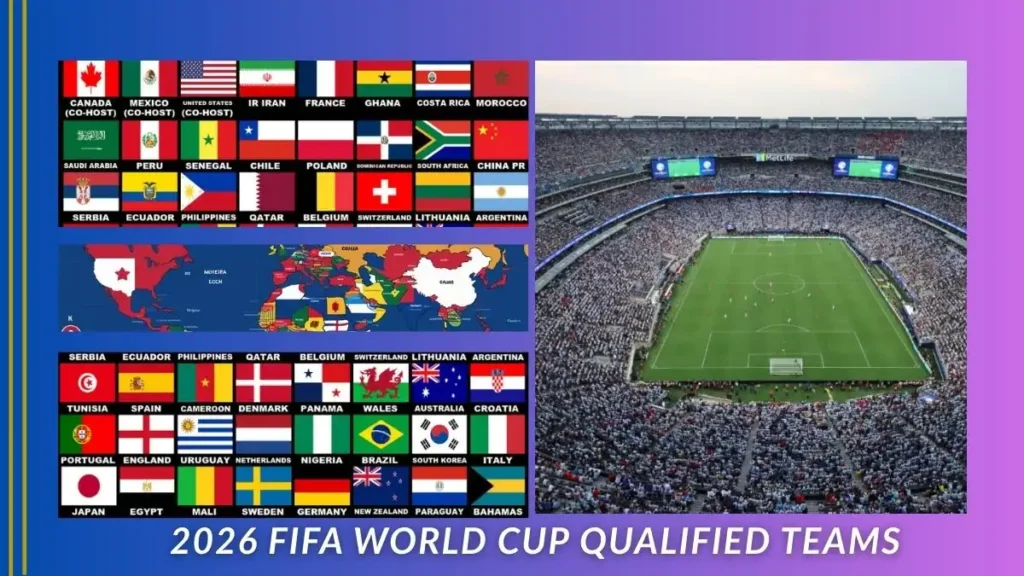
The qualification process for 48 teams creates opportunities for more nations than ever before.
Confederation Allocations
- UEFA (Europe): 16 direct spots
- CAF (Africa): 9 direct + 1 playoff spot
- AFC (Asia): 8 direct + 1 playoff spot
- CONMEBOL (South America): 6 direct + 1 playoff spot
- CONCACAF (North/Central America): 6 direct + 2 playoff spots
- OFC (Oceania): 1 direct + 1 playoff spot
Qualified Teams
Foty two teams have secured their spots as of November 2025:
Host Nations (Automatic): United States, Mexico, and Canada
| S No | Team | Confederation | Method of qualification |
|---|---|---|---|
| 1 | Canada | CONCACAF | Co-host (automatic) |
| 2 | Mexico | CONCACAF | Co-host (automatic) |
| 3 | United States | CONCACAF | Co-host (automatic) |
| 4 | Japan | AFC | AFC third round — Group C winners |
| 5 | Iran (IR Iran) | AFC | AFC third round — Group A winners |
| 6 | South Korea (Korea Republic) | AFC | AFC third round — Group B winners |
| 7 | Australia | AFC | AFC third round — Group C runners-up |
| 8 | Jordan | AFC | AFC third round — Group B runners-up |
| 9 | Uzbekistan | AFC | AFC third round — Group A runners-up |
| 10 | Qatar | AFC | AFC fourth round — Group A winners |
| 11 | Saudi Arabia | AFC | AFC fourth round — Group B winners |
| 12 | New Zealand | OFC | OFC third round — winners |
| 13 | Argentina | CONMEBOL | CONMEBOL — winners (top positions) |
| 14 | Brazil | CONMEBOL | CONMEBOL — qualified (finished fifth in final table) |
| 15 | Colombia | CONMEBOL | CONMEBOL — third place |
| 16 | Ecuador | CONMEBOL | CONMEBOL — runners-up |
| 17 | Uruguay | CONMEBOL | CONMEBOL — fourth place |
| 18 | Paraguay | CONMEBOL | CONMEBOL — sixth place |
| 19 | Morocco | CAF | CAF first round — Group E winners |
| 20 | Tunisia | CAF | CAF first round — Group H winners |
| 21 | Egypt | CAF | CAF first round — Group A winners |
| 22 | Algeria | CAF | CAF first round — Group G winners |
| 23 | Ghana | CAF | CAF first round — Group I winners |
| 24 | Cape Verde | CAF | CAF first round — Group D winners |
| 25 | South Africa | CAF | CAF first round — Group C winners |
| 26 | Ivory Coast (Côte d’Ivoire) | CAF | CAF first round — Group F winners |
| 27 | Senegal | CAF | CAF first round — Group B winners |
| 28 | England | UEFA | UEFA — Group K winners |
| 29 | France | UEFA | UEFA — Group D winners |
| 30 | Croatia | UEFA | UEFA — Group L winners |
| 31 | Portugal | UEFA | UEFA — Group F winners |
| 32 | Norway | UEFA | UEFA — Group I winners |
| 33 | Germany | UEFA | UEFA — Group A winners |
| 34 | Netherlands | UEFA | UEFA — Group G winners |
| 35 | Belgium | UEFA | UEFA — Group J winners |
| 36 | Austria | UEFA | UEFA — Group H winners |
| 37 | Switzerland | UEFA | UEFA — Group B winners |
| 38 | Spain | UEFA | UEFA — Group E winners |
| 39 | Scotland | UEFA | UEFA — Group C winners |
| 40 | Panama | CONCACAF | CONCACAF — Group A winners |
| 41 | Haiti | CONCACAF | CONCACAF — Group C winners |
| 42 | Curaçao | CONCACAF | CONCACAF — Group B winners |
Group stage
All teams are divided into 12 groups of 4 teams
Ticket and Hospitality
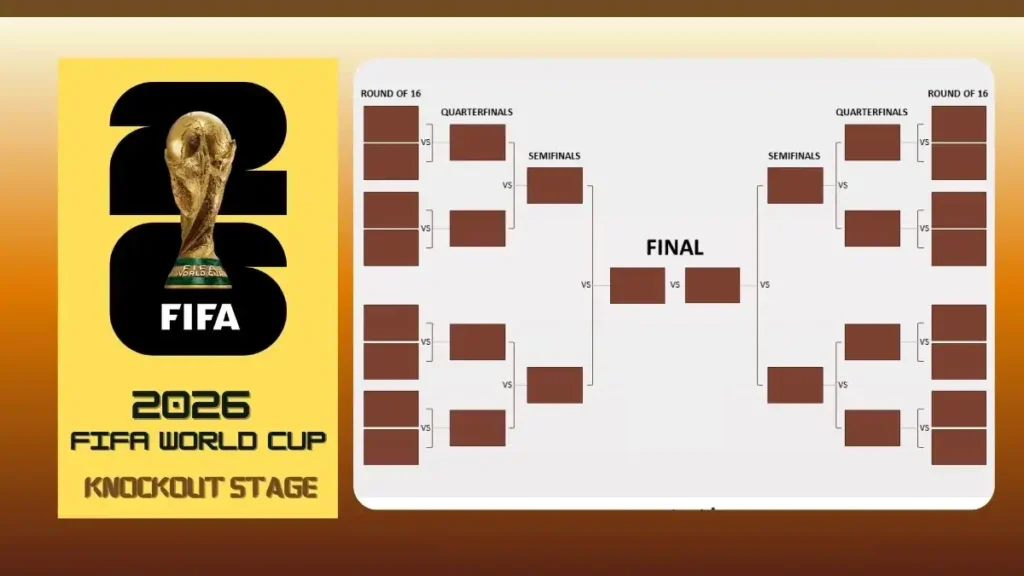
First sale of General Sales begins: September 10, 2025, via fifa.com/tickets
Price Ranges (USD):
- Group Stage: $82-$259
- Round of 16: $118-$318
- Quarter-finals: $235-$494
- Semi-finals: $412-$1,118
- Final: $706-$1,882
Premium Packages
FIFA offers exclusive hospitality experiences:
- US Venue Series: $8,275+ for 4-9 matches in one city
- US Four-Match Series: $5,300+ for group stage matches
- Follow My Team Series: $6,750+ for all team matches
Economic Impact
The 2026 World Cup promises unprecedented economic benefits.
Overall Economic Impact
Total Tournament Expenditure: $13.9 billion
- Tourist Spending: $7.5 billion
- FIFA Investment: $3.8 billion
- Host City Operations: $1.8 billion
- Infrastructure Investment: $0.9 billion
Regional Benefits
New York/New Jersey Region:
- Projected $3.3 billion economic impact
- 1.2+ million expected visitors
- 26,000+ jobs supported
- $431.9 million in state and local tax revenue
Los Angeles Region
- $343 million in direct spending
- 179,200 out-of-town visitors expected
- $230.4 million in future tourism revenue
Technology and Innovation
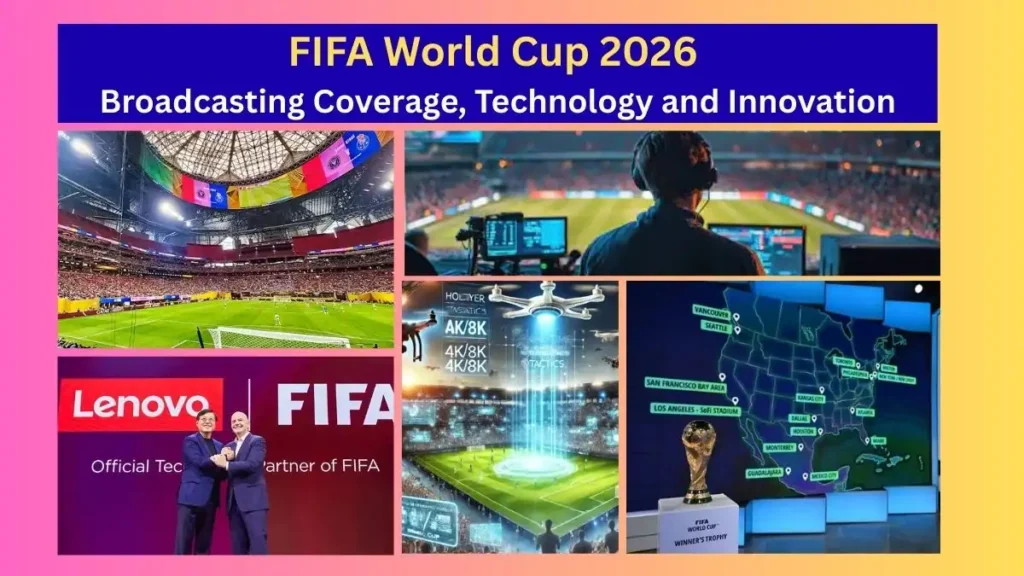
- Advanced Officiating Technology
- The 2026 World Cup will feature cutting-edge technology
- Enhanced Semi-Automated Offside Technology (SAOT)
- 12 tracking cameras per stadium
- 29 data points tracked per player, 50 times per second
- The ball sensor is sending data 500 times per second
- Automated alerts to VAR officials within seconds
- Only calls within 10 centimeters require manual oversight
- Automated Data Collection
- Computer vision algorithms track shots, passes, and corner kicks
- Replaces manual event data tabulation
- Enhanced match statistics and analytics
Official FIFA World Cup 2026 Ball

TRIONDA (from Tri + Onda — “three waves”) is adidas’ Official Match Ball for the FIFA World Cup 26™. Its visual language and engineering celebrate the three host nations (USA, Canada, Mexico) while introducing the latest Connected Ball Technology into the World Cup match ball for the first time.
TRIONDA incorporates the next iteration of adidas Connected Ball Technology: a 500 Hz inertial measurement unit (IMU) motion sensor is mounted off-centre inside one panel (side-mounted), with counterbalances in the other panels to preserve balance and flight behaviour. This is a departure from earlier center-suspended chips.
Broadcasting Coverage
Television Partners:
- USA: Fox Sports and Telemundo (all 104 matches)
- UK: BBC and ITV sharing coverage
- Global: Sport 24 for in-flight and cruise ship audiences
Security and Safety Measures
Comprehensive Security Framework
- The tournament will implement sophisticated security operations:
Multi-Agency Coordination
- Joint operations centers across host cities
- Trilateral security cooperation between US, Mexico, and Canada
- Real-time intelligence sharing
- Coordination with federal, state, and local agencies
Advanced Technology Systems
- AI-powered behavioral analysis and facial recognition
- Drone surveillance networks
- Predictive policing algorithms
- Multi-layered stadium screening processes
Physical Security Measures
- Vehicle and pedestrian screening zones
- Inner and outer security cordons
- Emergency response protocols
- Crowd management strategies
Sponsorship and Commercial Partners
Here is the list of the updated FIFA World Cup 2026 City sponsors List
FIFA Partners (Top Tier)
- Aramco – Official energy partner
- Adidas – Official ball and kit supplier
- Coca-Cola – Official beverage partner
- Visa – Official payment technology
- Hyundai-Kia – Official automotive partner
- Qatar Airways – Official airline partner
- Lenovo – Official technology partner
FIFA World Cup 2026 Sponsors
- Bank of America – Official banking services
- Budweiser – Official beer sponsor
- McDonald’s – Official restaurant partner
- Verizon – Official telecommunications
- Frito-Lay – Official snack food partner
- AB InBev –
- American Airlines –
- Mengniu Dairy – A dairy products company
- Unilever (Dove Men+Care) – A consumer goods company, with Dove Men+Care as a sponsor
FIFA World Cup 2026 Supporters
- Rock-it Cargo – A logistics and freight forwarding company.
- Valvoline Global – An automotive lubricant and service company.
Environmental and Cultural Legacy
The FIFA World Cup 2026 is more than just a football event; it’s a glimpse into the future of global sports collaboration, innovation, and cultural festivity.
Its expanded format, shared hosting across three nations, and state-of-the-art infrastructure, this tournament promise to redefine excellence in sports.
Sustainability Initiatives
- Existing Venues: No new stadium construction reduces environmental impact
- Public Transportation: Enhanced mass transit systems
- Green Technology: Advanced ecological protection measures
- MLS League and Academy’s impact on players
Cultural Impact
The tri-national format creates unique opportunities for cultural exchange:
- Language Diversity: English, Spanish, and French as official languages
- Fan Festivals: Celebrations of North American diversity
- International Relations: Strengthened diplomatic ties between host nations
